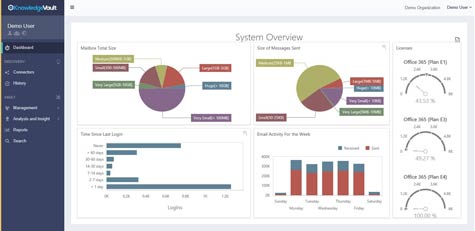Knowledge Vault today announced the general availability of its namesake analytics-as-a-service platform that provides more insight into how documents are being consumed and shared beyond anything IT organizations could hope to accomplish on premise.
Knowledge Vault CEO Christian Ehrenthal says that starting with Microsoft Office 365 deployments, IT organizations can use Knowledge Vault to discover and audit content and apply governance policies to documents stored in the cloud. Next up, says Ehrenthal, will be support for Dropbox, Microsoft OneDrive and Box.net.
Knowledge Vault itself makes use of a Big Data analytics engine based on Hadoop that runs on Microsoft Azure to analyze the content of documents that it accesses via the application programming interfaces (APIs) that various cloud service providers expose. That data then gets stored on top of Hadoop as a Knowledge Vault object.
Ehrenthal says Knowledge Vault essentially makes it possible for IT organizations to more easily define a data model in the cloud, which he notes is one of the primary reasons that IT organizations are often dragged kicking and screaming into the cloud. Now those same IT organizations can exercise more control over a data model in the cloud than they ever had on premise.
One of the primary reasons that IT organizations resist moving to the cloud is due to a fear of losing control over the IT environment. But as cloud computing continues to evolve, they may soon discover that when it comes to cloud computing, the exact opposite may be true.




